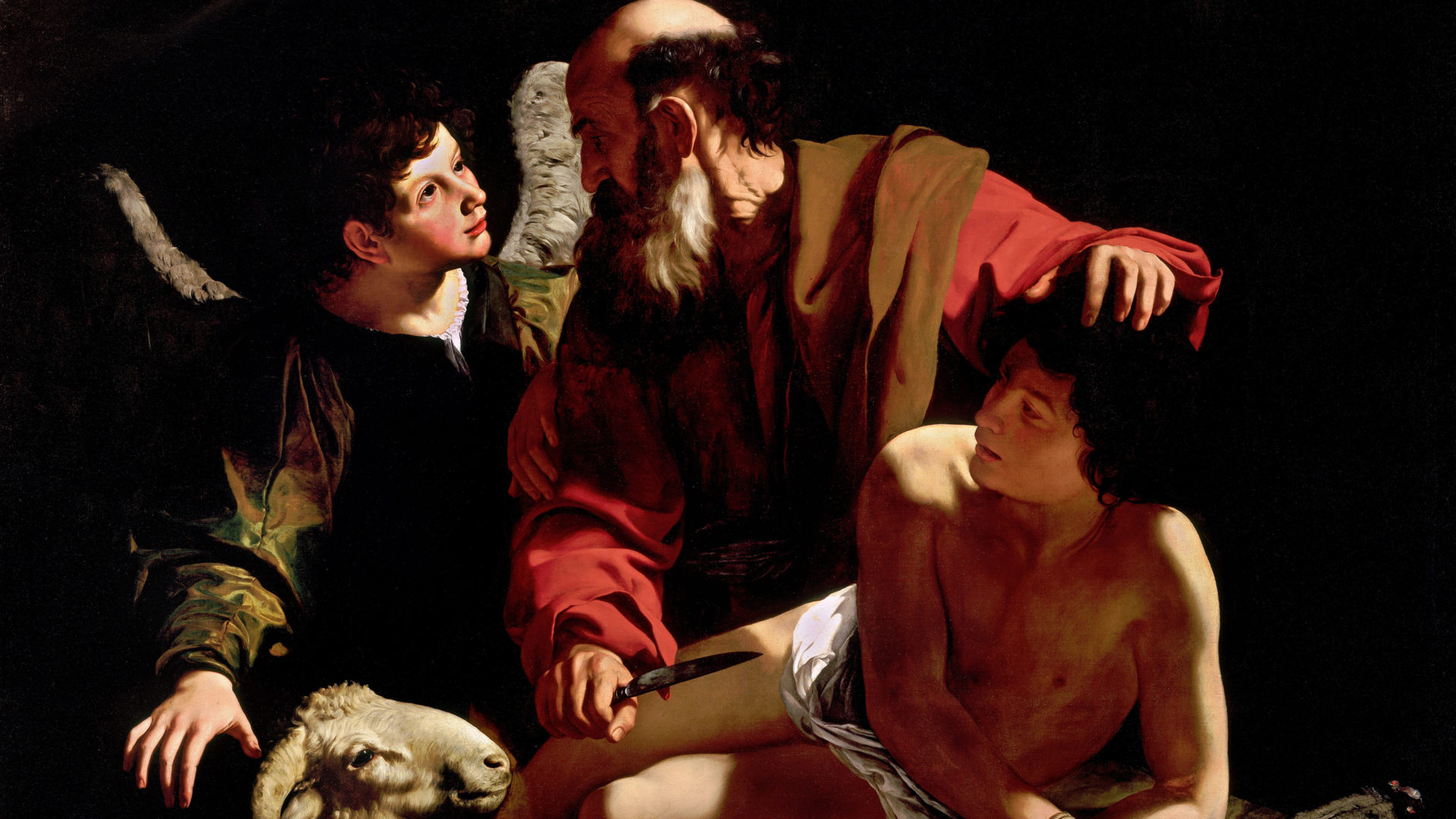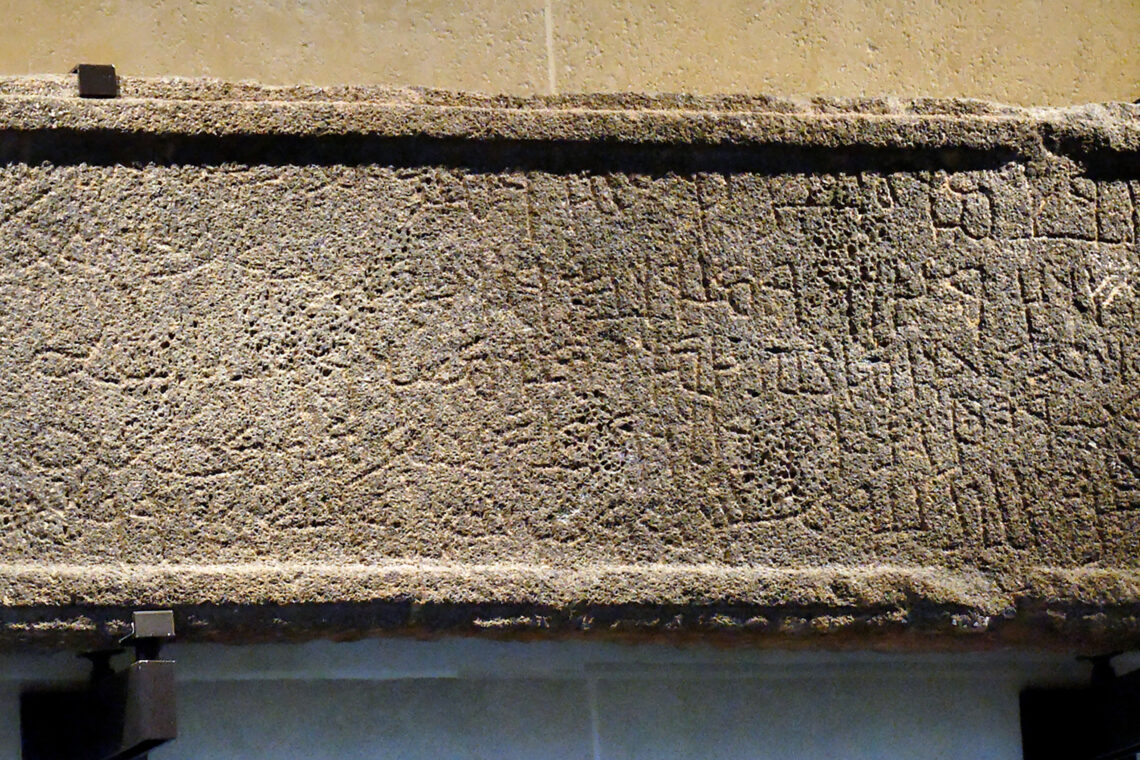The prophet Abraham plays a huge role in Islam, but his story also suggests that Islam borrowed heavily from the Jewish tradition, that Islam (as suggested in my latest articles) may have originated in the land of Canaan (Levant), not Arabia, and that Arabs rewrote the original story of the patriarch as part of the process of establishing their own religion. As with many things believers take for granted, there is no independent information regarding Abraham, Ishmael, Isaac or Jacob outside of Jewish, Christian, and Muslim accounts. And these are clearly the work of humans in history.
Except for the part dealing with Abraham and Ishmael in Mecca, which exists only in Islam, the rest of Abraham’s story derives from a Jewish portrait fashioned over centuries. Abraham first appears rather abruptly in the Book of Genesis, part of the Hebrew Bible (Old Testament), supposed to have been composed around the 6th or 5th century BC. After God’s failed experiment to create a line of decent human beings through the lineages of Adam and Noah, he turns to a 75-year-old man named Abram and asks him to abandon his home in the ancient city of Ur (in southern Iraq today) and migrate with his kin and possessions to the land Canaan, promising to make of him and his descendants a great nation. Abram obeys and leaves. As he goes further south he encounters famine and crosses into Egypt, claiming to be Sarai’s brother, not her husband, on account of his wife’s beauty. Apparently, being the husband of a beautiful wife (she must have been at least 65 at that time) was life threatening for a man in Egypt. No sooner does the couple enter Egypt than Sarai ends up in the Pharaoh’s harem and Abram with riches. Soon, however, God inflicts plagues on the Pharaoh for taking Abram’s wife, leading the confused Pharaoh to complain that it is not what he has been told. Still, the Egyptian king spares the couple’s lives and expels them from his country. Abram eventually ends up in Hebron, where he builds an altar to his God.
The years pass but God keeps repeating his promise to grant him the whole of the Fertile Crescent and make of him a great nation. The problem is Abram needs a son and Sarai can’t give him one. So she allows him to marry her Egyptian slave Hagar. At the age of 86, Abram finally gets his first son and names him Ishmael.
Once again, God promises a great nation, but this time the promise needs to be sealed in a covenant or binding contractual relationship. Abram’s name is now replaced with that of Abraham, one that is fitting for “the father of a multitude of nations” that is destined to grow out of his loins, a special nation whose male members are now expected to be circumcised on the 8th day of their birth. To get Sarai ready for ths momentous mission, God also changes her name to that Sarah.
With the stage thus set, God promises a biological son from Sarah. The grateful but somewhat astounded Abraham can’t resist asking whether the Lord really means what he says, especially since he is now 100 years old and Sarah a ripe 90. God, however, is not joking. He promises a flesh-and-blood son by the name of Isaac, the true bearer of his covenant, although Ishmael will also engender a great nation of his own.
After a few dramatic events, such as God destroying Sodom and Gomorrah for their sins and Abraham being spared from having to give up his wife (again) to another king, Sarah finally conceives and gives birth to Isaac. The new boy is duly circumcised on the 8th day, while Hagar and her son are expelled from Abraham’s house, even though God’s promise to make of Ishmael a great nation still stands.
As if Abraham’s life were not eventful enough, God now asks him to sacrifice Isaac, the only link to the chosen nation he has been promised. Just as he prepares to do so in a place called Adonai-yireh (identified by later Jewish tradition as Mount Moriah in Jerusalem, the site on which Solomon is supposed to have built his Temple), God intervenes with a ram and spares the child’s life. Abraham has survived his major test of faith and his chosen progeny is set for everlasting benefits. The act of near sacrifice (known as The Aqedah, or Binding, in Judaism) is what cements Abraham’s covenental relationship with his Lord.
After Sarah dies at the age of 127, Abraham takes another wife—Keturah—and engenders six more sons before he dies at the age of 175. God’s promise is now truly fulfilled: Abraham turns out to be the true father of a multitude of nations.
This is, in condensed form, the story of Abraham as it appears in Genesis, the earliest record we have of the man’s story. As Jon D. Levenson explains in Inheriting Abraham (2012), his meticulous study of the image of Abraham in Judaism, Christianity and Islam, the popular and well-intentioned talk about Abrahamic faiths overlooks this early history because all three religions—including later postbiblical Jewish traditions—took the liberty to shape the patriarch into their image, projecting onto Abraham the concerns of their own days.
Thus, sometime in the 2nd century BC, Abraham was transformed into an uncompromising opponent of idolatry. Gradually, Judaism, Christianity and Islam lost sight of Abraham as he was first recorded in Genesis. Jews made him out to be a faithful observant of the Torah (with its 613 commandments) that was handed down to Moses on Mount Sinai. As Levenson puts it, traditional Jews believe that Abraham was as real as anyone gets, that “he preached monotheism, smashed his father’s idols, survived lethal persecution by an idolatrous king [Nimrod], and, what is more, practiced the whole Torah . . . before it was given on Sinai or otherwise made publicly available.”
To Paul, the true founder of Christianity, it was Abraham’s faith that made him the ancestor of nations, not the foreboding laws of the Torah, including the commandment of circumcision, even though the latter is the only Abrahamic ritual attested in Genesis. Thus, the Christian emphasis on faith and faith alone is a restoration of the simple Abrahamic creed in the figure of Jesus Christ. (Adam was not considered worthy since he sinned.) In fact, it would seem that the figure of Isaac, with his miraculous birth and near sacrifice, is closer to the Christian spirit than his idol-smashing father. His life serves as a sort of prelude to the coming of Christ, the ultimate martyr. As a bishop from Asia Minor wrote in the late second century AD, it was Christ, not Isaac, who really suffered.
Such views posed a challenge to Judaism, so Jews responded by tying the patriarch ever more tightly in their Mosaic laws. As noted above, Genesis itself says nothing about idolatry or laws of any kind, expect the bond of ritual circumcision. God chooses Abraham and his people without any conditions or expectations; laws were the outcome of another divine intervention, this one with Moses on Mount Sinai during the Exodus.
One could reasonably argue, then, that Abraham is first and foremost a Jewish creation, but that creation was readjusted and refined to better meet the needs of all three monotheistic religions over time. For example, Judaism, Christianity, and Islam treat Abraham as a paragon of faith, but such a quality doesn’t feature in Genesis. For some impexplicable reason, God chose an old man and his barren wife to give physical birth to a special nation. For it is biology that Genesis talks about, not some metaphor like faith. Circumcision is the flesh-and-blood ritual affirming this promise, not an abstract baptism in the Christian faith. And God is specific, too, about who would inherit Abraham’s grace. Neither his oldest son Ishmael nor his six younger sons are chosen for this burdensome honor. It is Isaac who is singled out. And what’s more, God’s promise seems to be irrevocable.
The three religions, however, share the notion of chosenness, although it means different things to all three faiths. For Jews, the matter is biological; for Christians, it is election through grace and faith in Christ; and for Muslims, it is through obedience to God’s laws. One could say that early Christians (like Jesus and Paul) and Muslims can both claim biological descent from Abraham, either through Isaac or Ishmael. But whereas Christians reject the Mosaic Law into which Abraham was embedded, Muslims embraced its spirit but whittled it down to suit their needs.
Levenson wrote his book to alert us to the well-intentioned approach of using a neutral Abraham in order to bring Judaism, Christianity, and Islam together since such a method overlooks serious differences built around each religion’s conception of the patriarch. In the end, all three religions—Judaism, Christianity and Islam—used Abraham to differentiate themselves from one another, not to come together as a family of cousins, let alone children. Christianity cancelled Jewish laws to start a new faith centered on Christ the Savior, while Islam rewrote the story of Abraham to supersede both religions. Judaism and Christianity “agree on the canonical status of Genesis,” but not so Islam, which reserves that status to the Koran. The Koran may be indebted to Jewish and Christian scriptures and traditions, but it picks and chooses which stories to include or leave out. Abraham may be an uncompromising monotheist to Muslims and Jews, but Christianity, with its Trinity, simply is not. For a medieval Jewish scholar like Maimonides, Christianity is, in fact, a form of idolatry. How, then, can these religions seriously claim the same ancestor?
The three religions may revere the Cave of the Patriarchs in Hebron where Sarah, Abraham, Isaac, his wife Rebekah, their children Jacob and Leah are supposed to be buried (Jews believe that Adam and Eve share the same resting place), but such reverence is unlikely to translate into theological agreements. As Levenson’s study makes clear, Abraham differentiates the three religions more than he unites them. Every religion has its own Abraham.
Like almost everything in the scriptures, the story of Abraham shows clearly that is the outcome of human storytelling, composition, editing, and revision. If we assume Arabs were influenced by Judaism and eventually broke away to establish a religion of their own, the Islamic account of Abraham begins to make sense. Ishmael needed to be reinserted into Abraham’s family as an elder child with full rights in order for Arabs to have an equal claim to the patriarch’s legacy. In this version of events, it is Ishmael who is supposed to have been sacrificed, even though the Koran doesn’t name the son chosen for this burnt offering. The choice of Ishmael over Isaac seems to have happened much later, when Muslims were taking a harder stance against Judaism, not in the early centuries of Islam. Finally, to break away with Judaism and Christianity in incontrovertible ways, Abraham was turned into the real founder of the Ka`ba in Mecca and the initiator of pilgrimage rites (a fact totally absent in earlier Jewish and Christian accounts). By rewriting the story of Abraham to bolster their new religion and bring the old man and his son Ishmael to Mecca, the Arabs could claim the ancient heritage of the Jews without having to adopt Judaism.
In the end, we are not the children of old Abraham. As with all deities and mythical figures, our ancestors invented a man and idolized him to give themselves a special status among nations. But if Abraham cannot gather Jews, Christians, and Muslims around a common theology, what is to prevent us from inventing yet another Abraham, one who represents our contemporary visions and aspirations, not the antiquated social mores of ancient Middle Easterners? After all, later generations of the people who invented Abraham had no qualms tinkering with their scriptures to re-create an ancestor better fitted for their times.
Can’t we do the same today?





What you missed about our idol Abraham: https://www.academia.edu/42937297/The_Abraham_and_Esau_Jacob_Stories_in_the_Context_of_the_Maccabean_Period & https://vridar.org/2020/10/02/origins-of-the-abraham-narrative/
You are going to have to brush up on the work Russell Gmirkin, Philippe Wajdenbaum, and some others have been doing in the last decade or so.